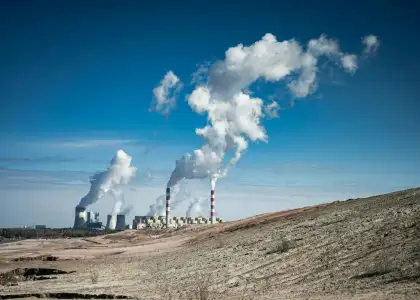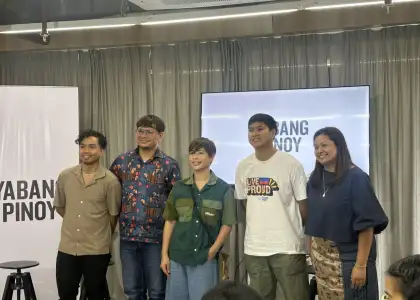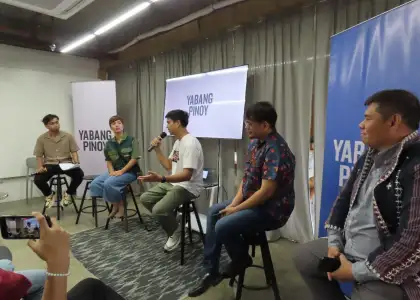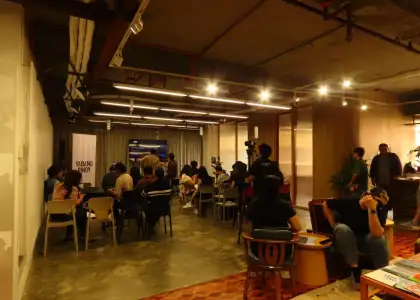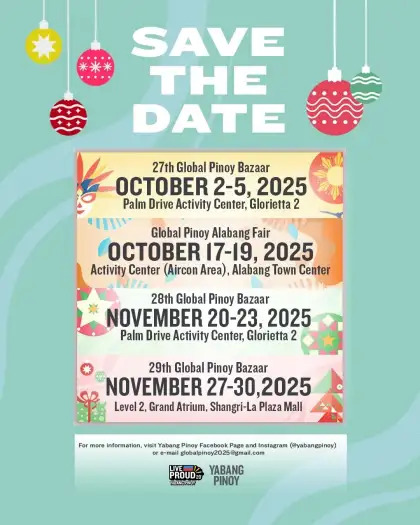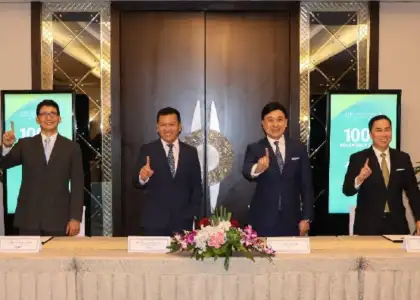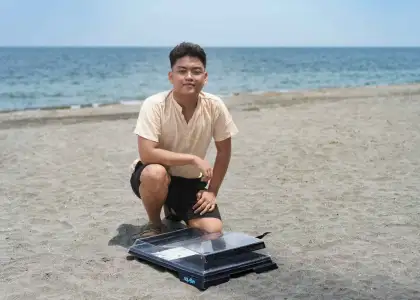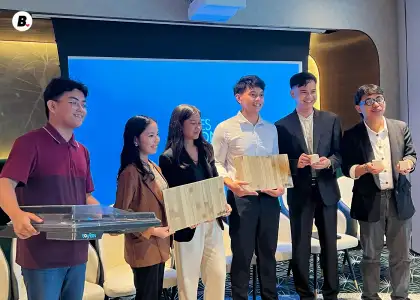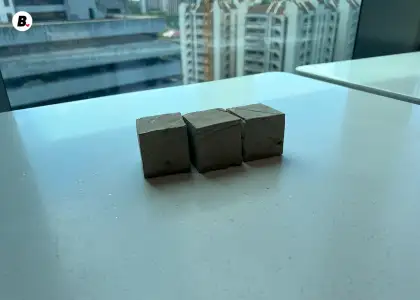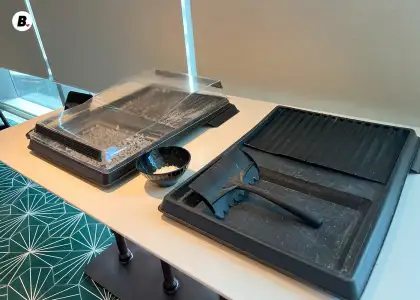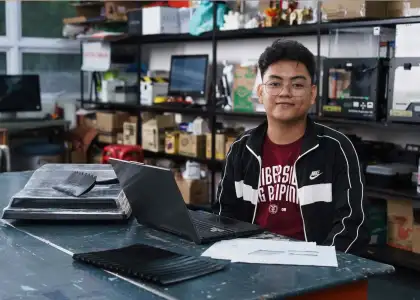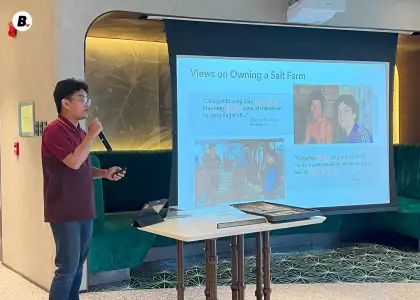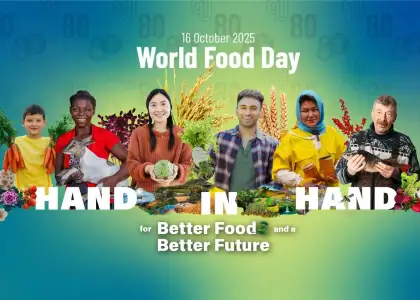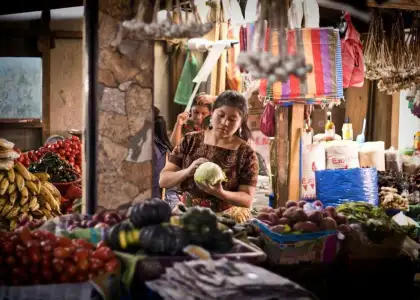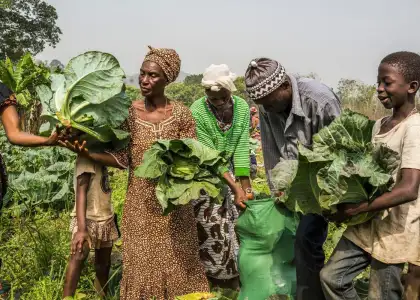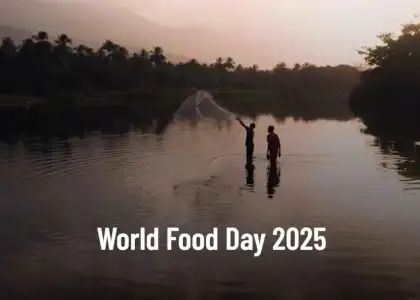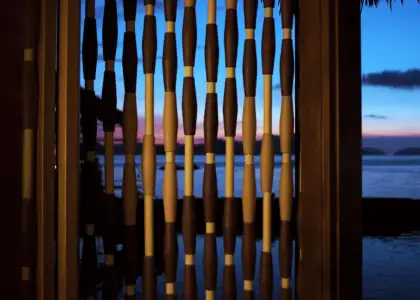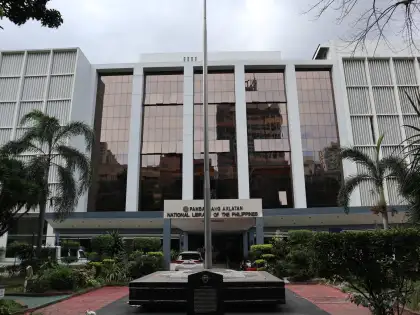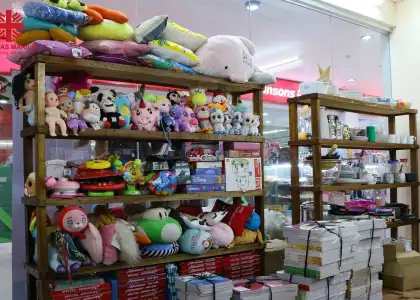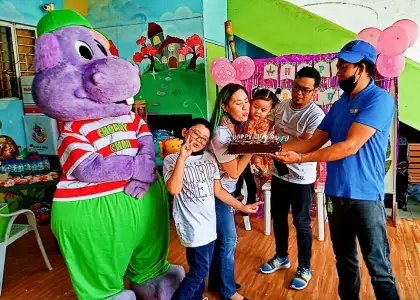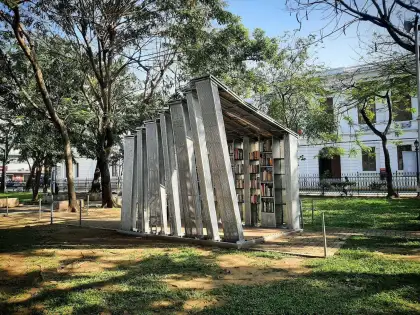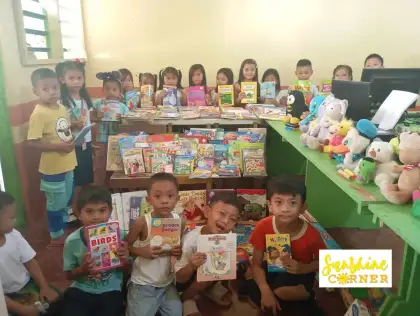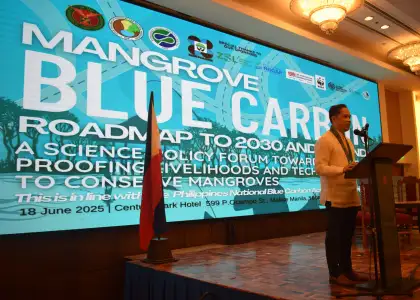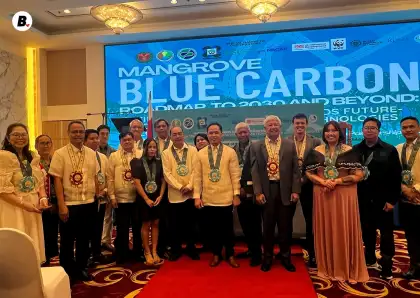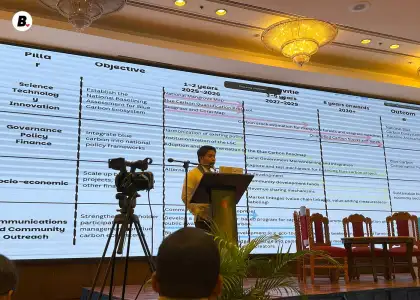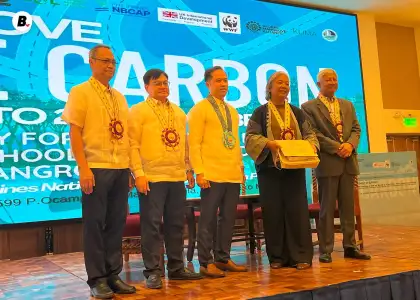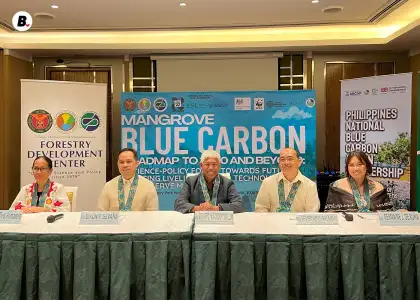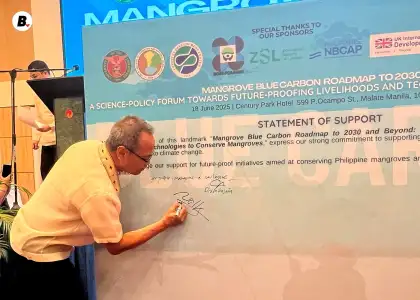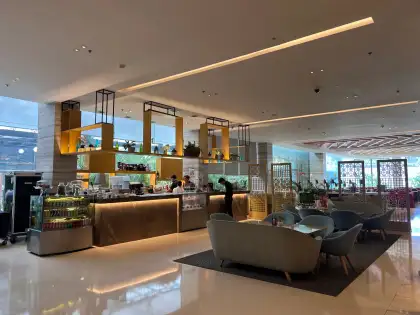Fighting for a Better World with Climate Justice Activist Mitzi Jonelle Tan
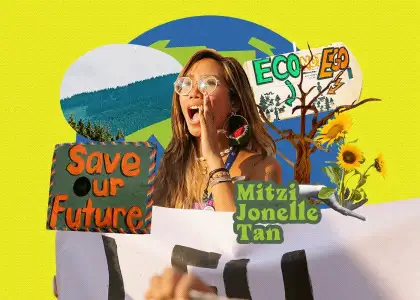
Twenty-six-year-old Mitzi Jonelle Tan has always felt a deep connection with nature, long before she even discovered activism and knew what climate change was.
An only child, Tan regarded the trees as her friends when she was growing up and often turned to them to find her way. But as a Gen Z who grew up amid the climate crisis, she has also experienced firsthand the effects of disasters, like typhoons and floods, and how her life and her loved ones’ lives would be upended whenever these would strike.
One typhoon years ago, the name of which she can no longer recall, left her feeling hollow.
"After what felt like days spent in the unknown, in the darkness because there was no electricity, we went out to get groceries again. We saw that all the trees were uprooted," she told The Beat Asia in an interview. "I felt very lost because they were my way of telling directions, they were my way of finding how to get to places, so I truly felt very lost. All my friends were gone."
College was a defining moment for Tan, who entered the University of the Philippines (UP) Diliman as an apolitical teenager.
In 2017, UP Diliman served as host to the displaced Lumad (non-Muslim indigenous peoples from Mindanao), Moros (Muslim indigenous groups), and other national minorities for their Lakbayan caravan, where they trooped to the capital to voice out the injustices committed to them: from the destruction and militarization of their ancestral lands and schools to the continued harassment and attacks against their leaders.
During this event, Tan encountered a Datu (a Moro leader) and their conversation about their people's plight calcified her resolve to become an activist: "We had no choice [but] to join the struggle for our environmental defenders and activists,” she said.
Tan eventually graduated with a Bachelor of Science in Mathematics in 2019 just before the pandemic hit – a trivia that not many people know, according to her, because it isn't really that connected to her work as a climate justice activist. Being a fresh graduate then, she had to make a choice between getting a "real" job or pursuing climate justice activism full-time. She chose the latter, which prompted many questions and concerns from her parents, her dad, especially, who didn't seem too keen on her choice, initially.
"My dad would talk to [my mom] and be like, 'What is she doing? [Why] is she becoming an activist?' And my mom would say, 'Where else would she have picked that up except you?' because my dad was an activist during the time of martial law," she explained.
Today, Tan shared her relationship with her parents has gotten better; time has transformed their apprehensions into support – as long as she regularly updates them about what she's up to and her whereabouts.
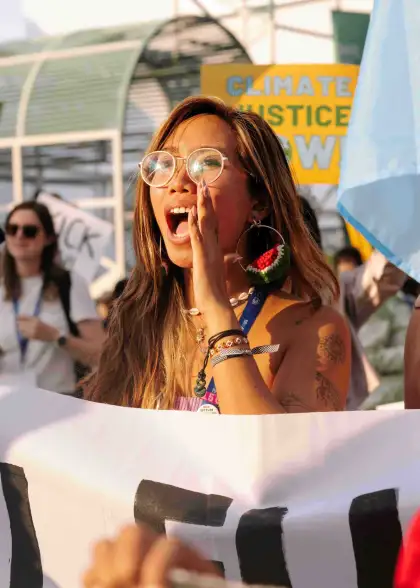
Working with the Grassroots, Speaking to the World
As the international spokesperson and convenor of Youth Advocates for Climate Action Philippines (YACAP), the Fridays for Future (FFF) of the Philippines, Tan has definitely been up to a lot of things as of late.
In 2021, she took to London and joined Sweden’s Greta Thunberg and other youth climate justice activists to protest outside the offices of Standard Chartered Bank, which is known for funding the most fossil fuel companies in the Philippines.
In 2022, she joined the Global Day of Climate Action at the 27th Conference of the Parties of the UNFCCC (COP 27). With a megaphone in hand, she talked about the plight of the Philippines as one of the most climate-vulnerable countries in the world, and one of the most dangerous countries for environmental defenders and activists.
She also spoke at the Global Climate Action closing plenary at COP28 last December, sharing her dream of a fossil-free world where our planet and its people matter more than profit.
Having had the opportunities to speak on global platforms about climate justice, Tan remains grounded by the challenges that surround climate justice in the Philippines, such as the lack of institutionalized climate education pushing for policy and systemic change, the public’s alienation from the issue due to technical language, and the difficulty in getting more visibility in mainstream media, among others.
Because she and fellow activists engage with grassroots and underserved communities, Filipino and other Philippine languages are used to communicate their advocacy’s message and make it accessible. Farmers and fisherfolk communities, in her observation, understand climate change better because of their life's proximity to nature. According to her, farmers who have been farming for generations are aware of the unnatural changes in the weather and seasons and are alarmed by these, while the fisherfolk know of the rising sea levels and the marine ecosystem. Urban poor communities are also aware of climate change because of the floods in their area and would know when there is drought because vulnerable populations like the children and elderly would get heatstroke.
For her, it's crucial first to get people interested enough to learn about climate change and climate justice. At its essence, she explained that climate justice is about feeling safe from an exploitative and extractive system, a condition where people don't ever have to worry about what they’re going to eat tomorrow or fear that their houses would be washed away during a typhoon's onslaught.
"Climate justice is about choosing life over death and understanding that everything we have ever loved and will ever love is on this planet. Wouldn't we do everything that we can to protect what we love and to make sure that it flourishes, that it lives, that we are able to enjoy it? And I think that is how we get people to tap into [it], 'Okay, this is something I should care about' and then we go into the more scientific, educational stuff.”
Anti-Imperialist Climate Justice Activism
For one to understand the climate crisis, one must also realize that the crisis is not an atomized, separate problem but one that's connected to other global issues such as colonialism, capitalism, and imperialism, as well as many injustices that concern class, gender, race, and ethnicity, among others.
In fact, the Intergovernmental Panel on Climate Change (IPCC), for the first time, identified the historical and ongoing patterns of colonialism as among the drivers of climate change in its Sixth Assessment Report in 2022.
The Philippines is no stranger to colonialism, having a long history of colonization at the hands of the Spaniards, the Japanese, and the Americans. At one point, the British also occupied Manila from 1762-1764 before handing over the country back to Spain. Notably, the Philippines also ranks 17th in the world among countries most affected by extreme weather events, according to the 2021 Global Climate Risk Index. The country is likewise identified by the World Bank and Asian Development Bank (ADB)’s 2021 Climate Risk Country Profile as having "some of the highest disaster risk levels in the world, and these are projected to intensify as the climate changes."
According to Tan, the climate issue cannot be divorced from politics and other systemic issues pervading the world.
"[The IPCC report] names colonialism as a reason behind countries being more vulnerable to the climate crisis because we just haven't been able to develop or we're not permitted to develop as much. So, we can't separate the environment from the rest of the world, from politics, because politics is what brought us to this environment," she said.
"It all comes from the seed of believing [there’s] an ‘Other’ [and] that isn't real... [These] all come from the same root of greed, of [the] accumulation of power and capital over either women or nature or the working class or people of color, seeing all of these [humans] as just resources to use."
Joy and Love in the Struggle
Take a scroll on Tan's Instagram account, and one can glean that the climate justice activist is a fan of the late author and social critic Gloria Jean Watkins, popularly known by her pen name "bell hooks.”
Her book, "All About Love," investigates the various forms and ways of love’s manifestation, offering new perspectives to readers on how to think about and situate love and passion in contemporary life.
Tan is certain of the fact that love is where her activism is rooted. And just as there is anger and sadness in the fight against climate change, there is also space for joy and community to coexist and thrive.
"All of it is [about] understanding that fighting for climate justice is a fight for life. Life as in being able to enjoy life, being able to love life,” she shared. “I think love is how you win the revolution.”
As for young Filipinos who want to be involved and take the first step in climate justice activism, she believes that one just has to start, even if one may think they don't know enough. She added that the youth must also find a group to share the struggle with and, just as importantly, to never forget to enjoy the process.
"We can recognize the suffering but also still enjoy the moments of community because we need to do both. We need to bring down the oppressive structures, but we also need to rebuild and build a better world," she said.
"We're not starting from scratch. The Philippines has a long, long history of fighting against colonizers [and] fighting for justice. Somewhere in your family, there's probably someone who went up against something, and so really tapping into that, feeling that, and knowing that you're not alone helps a lot."
The interview has been edited for length and clarity. To keep updated on Mitzi and YACAP’s initiatives, follow her and the organization on Instagram!
Get the latest curated content with The Beat Asia's newsletters. Sign up now for a weekly dose of the best stories, events, and deals delivered straight to your inbox. Don't miss out! Click here to subscribe.








